ITS Professor Initiated Smart SPAM as a Solution to Drinking Water Problems
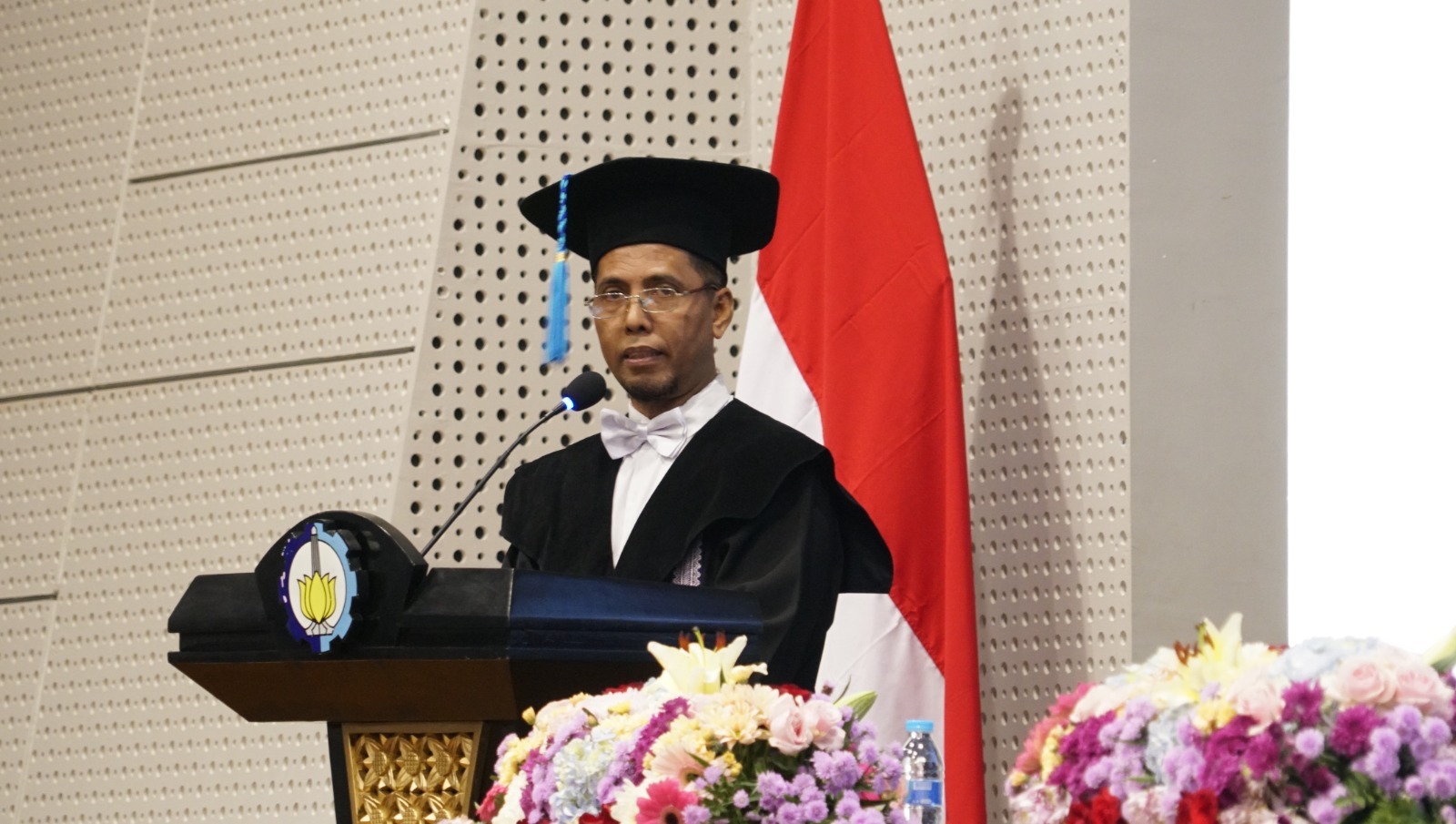
Professor of the ITS Environmental Engineering Department Prof Dr. Ali Masduqi ST MT while reading his scientific oration at his inauguration procession as the 152nd ITS Professor
ITS Campus, ITS News – Confirmed as a professor at the Institut Teknologi Sepuluh Nopember (ITS), Prof. Dr. Ali Masduqi ST MT made his scientific contribution to improving excellent drinking water services in Indonesia. This ITS Environmental Engineering Department lecturer is active in the field of drinking water supply engineering.
Seeing the problem of drinking water that has not been guaranteed its feasibility, this ITS professor continues to innovate to produce works that can be implemented to create a smart city. This was stated in his scientific oration during the inauguration of the professor entitled Implementation of Smart Water Supply Systems to Improve Excellent Drinking Water Services.
Through the implementation of an intelligent Drinking Water Supply System (SPAM), drinking water supply through a pipeline network will produce safe water with an efficient process. The implementation of the smart SPAM includes smart raw water monitoring, smart water treatment, smart water network, prime drinking water zones in DMA, and smart metering. “Monitoring and reporting raw water quality in real-time will get the best results in the shortest possible time,” said the lecturer who was born in Mojokerto, on January 28, 1968.
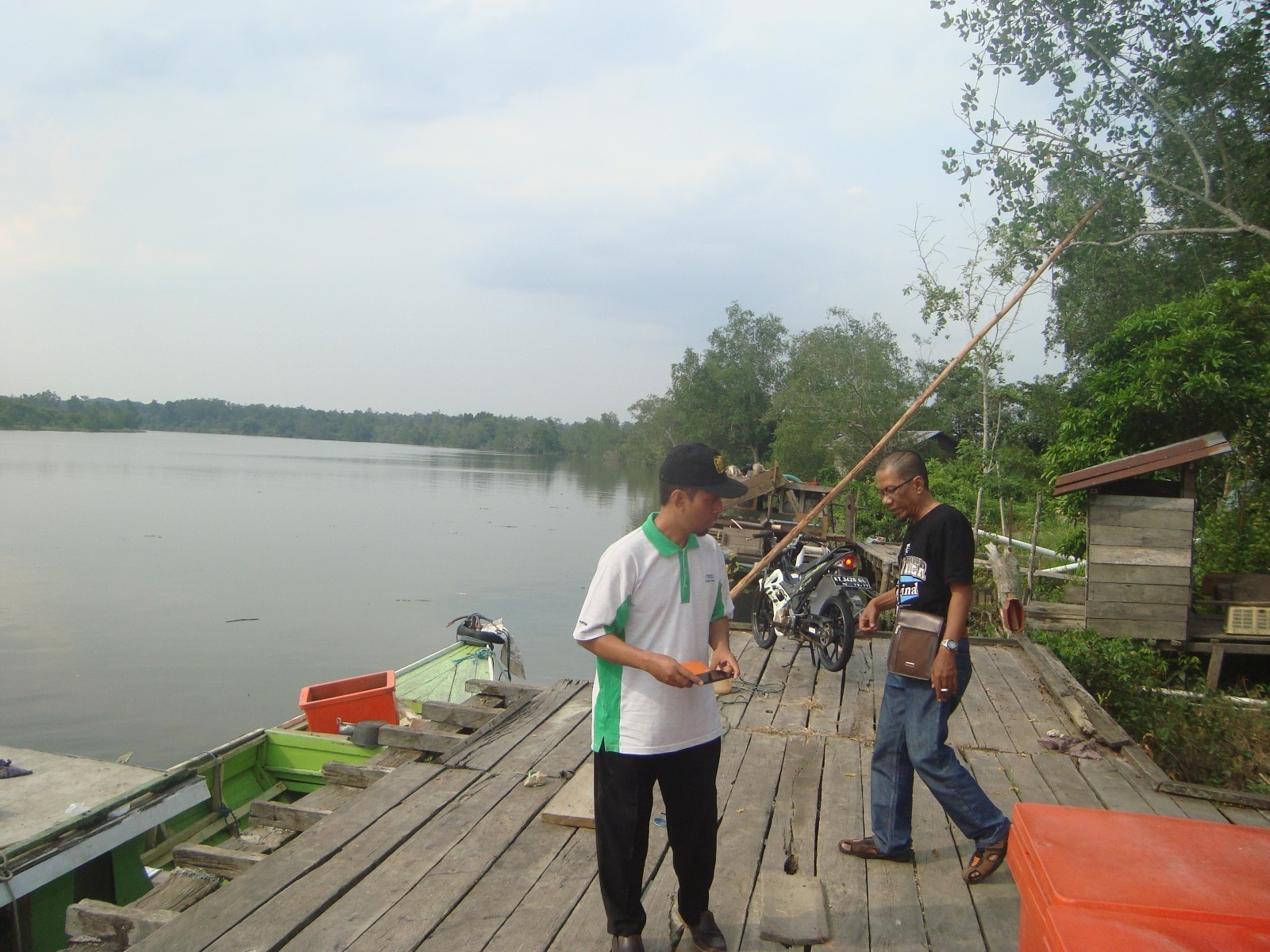
Prof Dr. Ali Masduqi ST MT (left) conducting a raw water survey in Berau District, East Kalimantan
Regional Drinking Water Company (PDAM) as the sole institution in a city in providing drinking water services, has a great opportunity to implement smart SPAM. However, PDAM’s drinking water infrastructure and facilities must be improved before Smart SPAM can be implemented. “If SPAM is implemented intelligently, there will be many benefits ranging from improving customer service to reducing maintenance costs,” explained the father of three children.
Furthermore, according to Ali, the implementation of the SPAM will save the lost water while increasing the PDAM’s revenue. Then, the results of energy efficiency and adjustment of chemicals will result in guaranteed water quality at affordable prices. Later, the funds obtained from the results of efficiency can be allocated as an increase in services to the community.
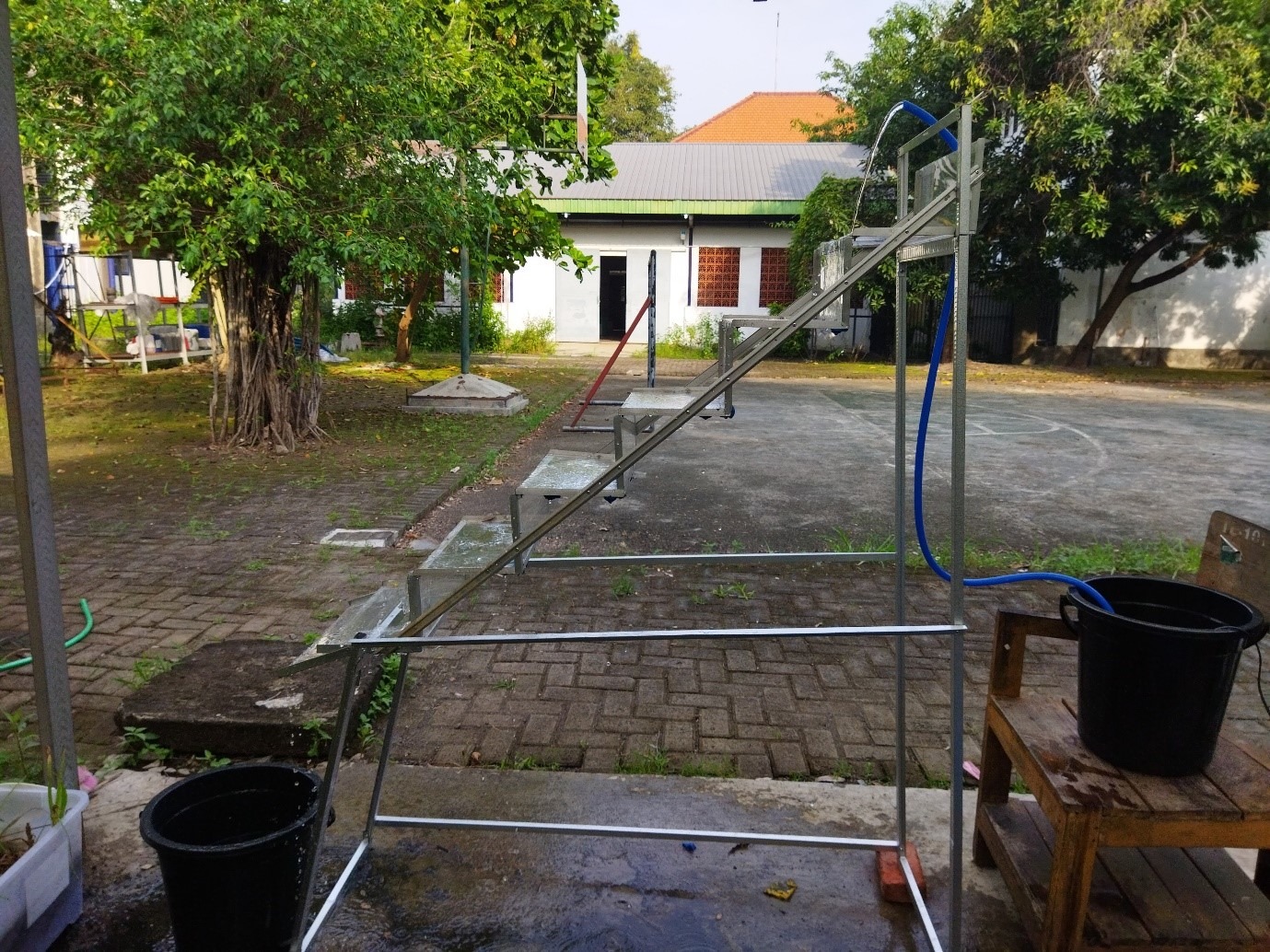
Display of the Cascade unit to reduce iron levels in the water as an effort to adjust the chemicals in the water
Apart from the advantages of SPAM, continued Ali, before being implemented, financial analysis should have been carried out first. It is important to do an investment feasibility analysis beforehand because smart SPAM requires quite a large amount of money. This analysis will compare the total costs with the benefits derived from implementing smart SPAM. “So that PDAM can become a company that produces potable water directly from the faucet,” said the husband of Tiyayah SAg.
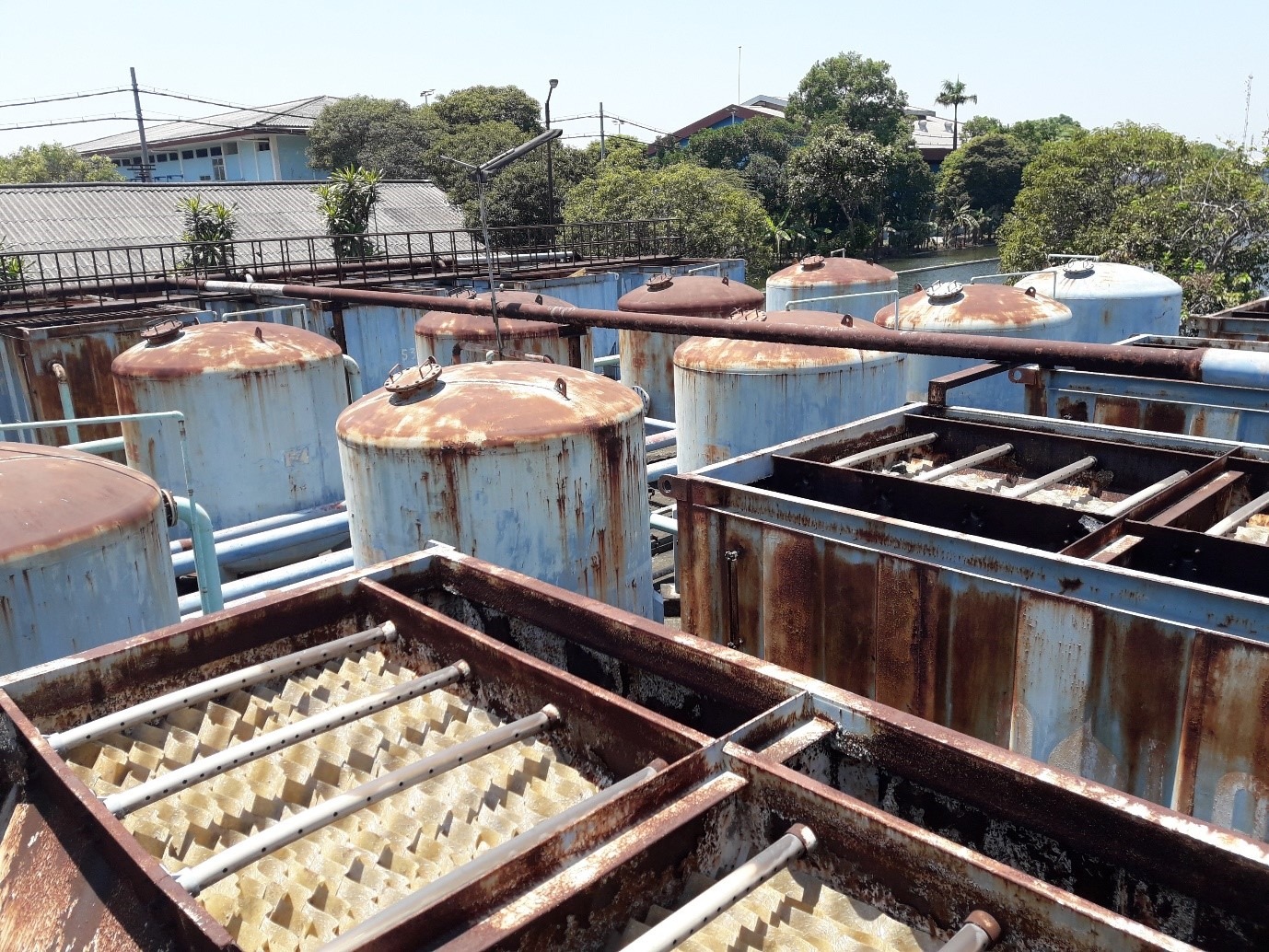
Kayoon PDAM Surabaya Water Management Installation (IPA) for evaluation studies and re-operation of the Drinking Water Supply System (SPAM)
Introducing smart SPAM in developing countries will be a challenge in itself, especially with limited human resources (HR) and technology. Reliable SPAM implementation is an urgent problem in developing countries that need to be addressed by considering social, economic, and environmental issues. “Therefore, PDAM must have a strategic plan and concrete actions to serve the community for the health and welfare of the nation,” said the ITS alumnus.
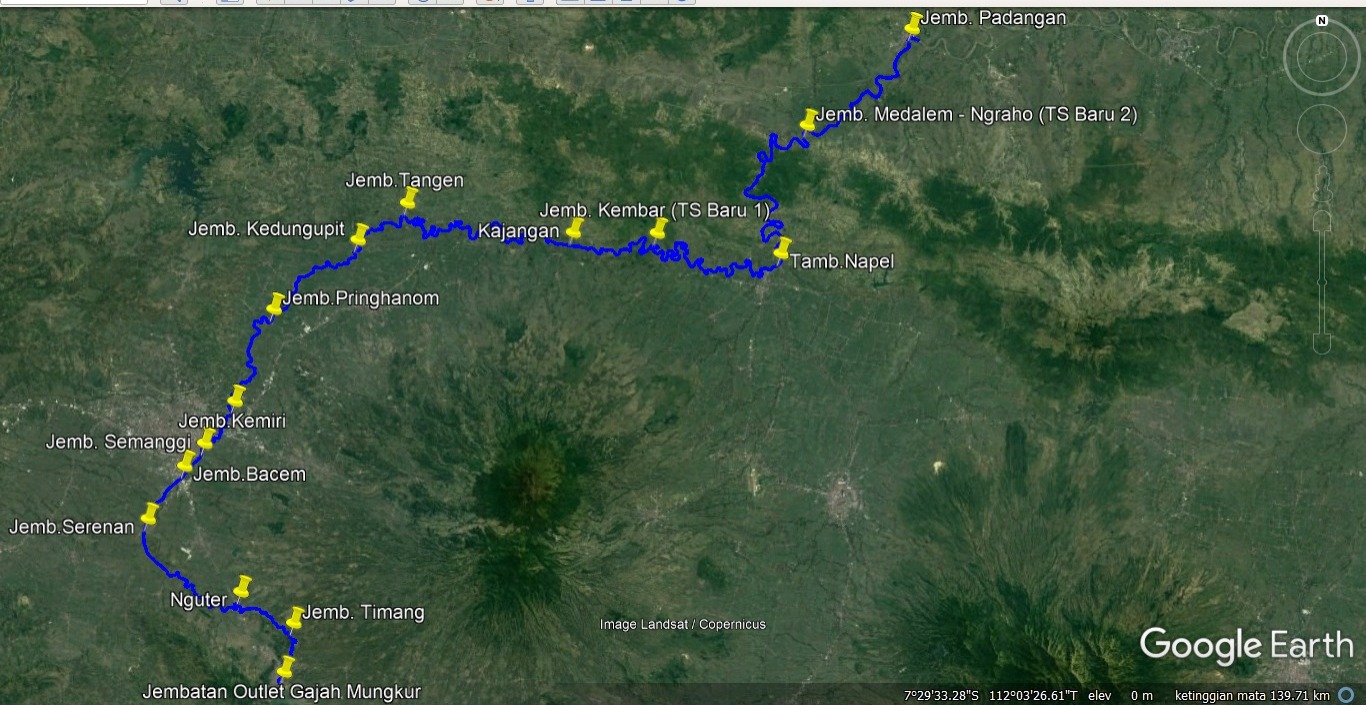
The results of the research on determining online monitoring points for water flow along the Bengawan Solo River in Central Java
Not only sharing knowledge on campus, but the 152nd ITS professor is also actively sharing on the Youtube page. Ali often distributes environmental education and preaching. Ali mixes and matches the environment from an Islamic perspective, on several occasions filling out congregational sermons and preaching videos by sharing a love for the environment from an Islamic perspective. “The professor title that I get now is a mandate to provide greater benefits to society,” he said. (ITS Public Relation)
Reporter: Silvita Pramadani
Related News
-
Facilitating Creativity of Students, ITS Information Systems Department Presents CCWS
ITS Department of Information Systems students conduct a discussion in one of the available spaces in the ITS Digital
May 11, 2023 10:05 -
ITS Explores Electrification Cooperation with PT Vale Indonesia
ITS Campus, ITS News — Following up on the Memorandum of Understanding (MoU) with PT Vale Indonesia, Institut Teknologi
May 11, 2023 10:05 -
ITS Reaches Top 7 BRIN Collaborators with 309 Scientific Publications
ITS Campus, ITS News — Institut Teknologi Sepuluh Nopember (ITS) continues demonstrating its commitment to strengthening collaboration in research
May 11, 2023 10:05 -
The Only One from Indonesia, ITS Student Becomes Erasmus+ Scholarship Awardee
ITS Campus, ITS News — Civitas academica of Institut Teknologi Sepuluh Nopember (ITS) has once again contributed to making
May 11, 2023 10:05
